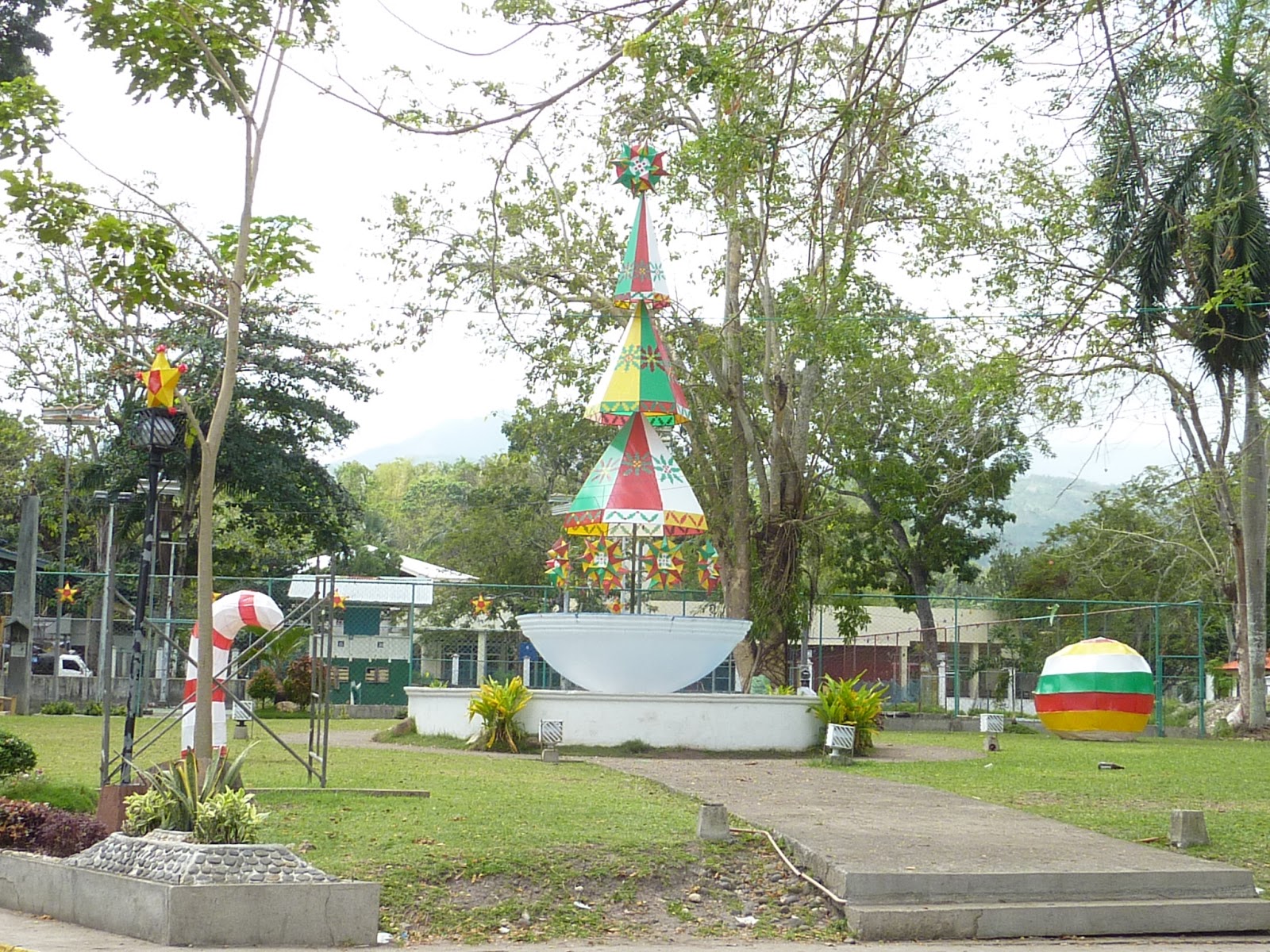 |
| A local version poinsettia |
Elder Cropper chose and uploaded our pictures for the blog
at 1 am Christmas morning because we had spent all day shopping for, preparing,
and delivering baskets, then we went to the C family Christmas Eve Family Home
Evening and stayed later than we should have, and the uploading takes
hours. I was finishing the captions at 2
am. Yikes!! It was like we were up late
wrapping presents for little ones with our Santa hats on.
BUT I woke this morning at 6 and realized I hadn’t really
said what we had wanted to say about Christmas, so . . .
The pictures of all the lights, nativities, snowmen and
trees in the different towns are a small representation of what we see for
months here in the Philippines as we drive all up and down the province of
Negros Oriental. People love to celebrate this holiday!! People start saying “advance
Maayong Pasko” in September and then by December they are leaving off the “advance”
And yes, they say “advance” in English, and Merry Christmas in Visaya or
English, depending on . . . I’m not sure
what.
The others pictures are of some of the many families we took
baskets to. The Elders helped sort and
make the baskets and then off we trekked, down a river bank and out to the
beach and into the crab fields and today we will do some more in jungle and
mountain. What a joy it is to see the
faces of especially mothers and fathers when they see that their children will
have something they never in a lifetime expected. It could get addicting.
We didn’t add pictures of the two events that really felt
like Christmas to us. The first was the Christmas
devotional for the missionaries on our island brought to us by the Schmutzes
and the APs. It was so great!! They
showed the gorgeous Immanuel video from the church website, then President gave
a beautiful Christmas message—he is an artful story teller, and can really
bring even long-loved stories to another level of animation. He weaves different passages of scripture
together until you are able to discern patterns you had never seen. Christmas celebrations could have stopped
there and we would have been so happy. But of course we ate--a catered meal of
Italian pastas and chicken. And of
course there was a talent show by the missionaries in which of course Elder
Cropper and I had to do something goofy—chinikins—with the Zone leaders. It was so fun to see all these missionaries
come up with things that you would never have imagined.
Then at the C. family’s FHE, we felt again what they have
been so great at extending to us—the love of family—that unconditional
acceptance when you know that the differences don’t count and the language is
not a barrier (‘cause of course their English is good, but it’s more than that)
and you are truly loved.
We have also been to several church Christmas parties in
different branches and one district, and there are more of those to come during
this week. They have been fun and certainly
lively, and I had to shed a tear about this being our last Christmas here with
these people we have come to feel so close to, while at the same time I was
mourning not being with our own family.
Strange.
And the conclusion of all this: it really is about Christ. All the preparations, all the giving, all the
receiving originates in our love of the Savior and our gratitude for his birth
and life. Even if, when the Bais town
council, puts up a 40 foot Christmas tree, they have no real thoughts of the
Christ child, still for those of us who worship him, the tree and all the rest
remind us of that sacred, holy, eternal gift from our Eternal Father and his
blessed, obedient, unspotted, majestic Son.
The message we have been sharing as we find ourselves called
on to give a Christmas thought everywhere we go is twofold: First, the humble
circumstances in which this King was born, speak to us of our Father’s lesson that
our circumstances do not define us and that we too have divine natures. We are children of God. The miracle, majesty, and mystery of His
birth all become a glorious portrayal of the divine heritage we too can
claim. So when we hear the song, “Away
in a Manger” we can think of the song, “I am a Child of God”. Though Christ was the Only Begotten, a God
himself, and we are not, we are His
spiritual children, and we are sons and daughters of His Father.
 |
| Moon rise over Cebu from our house. |
The second message we have been sharing is that of the light
that emanates from the Savior and how that light is represented in the new star;
the star was foretold in both hemispheres appeared at His birth. That light animates each soul. It is what
allows the sun to shine and our hearts to beat.
It is the source of the love we feel for each other and the love we feel
from God. Wise men knew. Samuel
knew. And we now know.
May we recognize the source of the light in our lives--the babe,
the King, the Son, our brother, Jesus Christ.
Merry Christmas to all.
















































.JPG)

